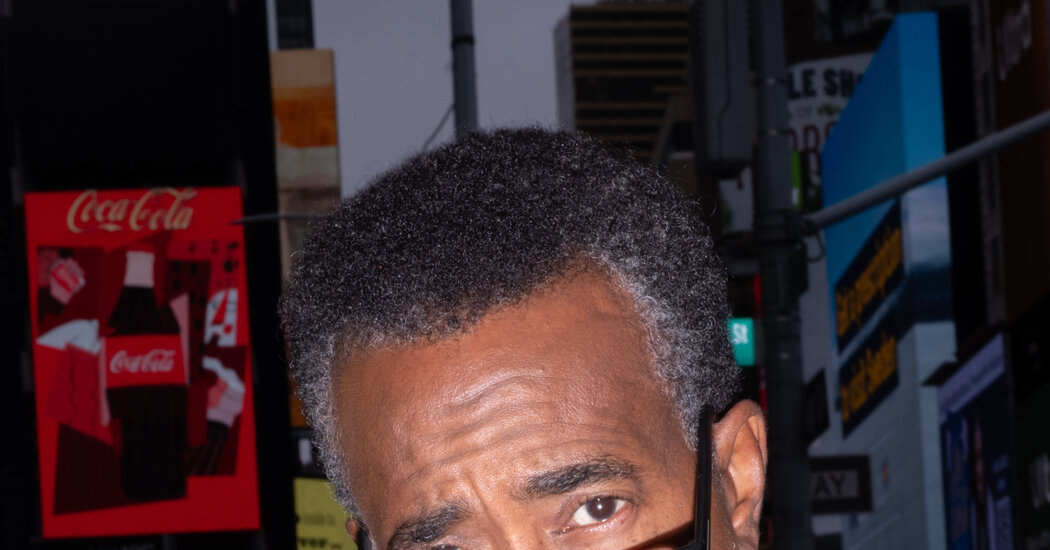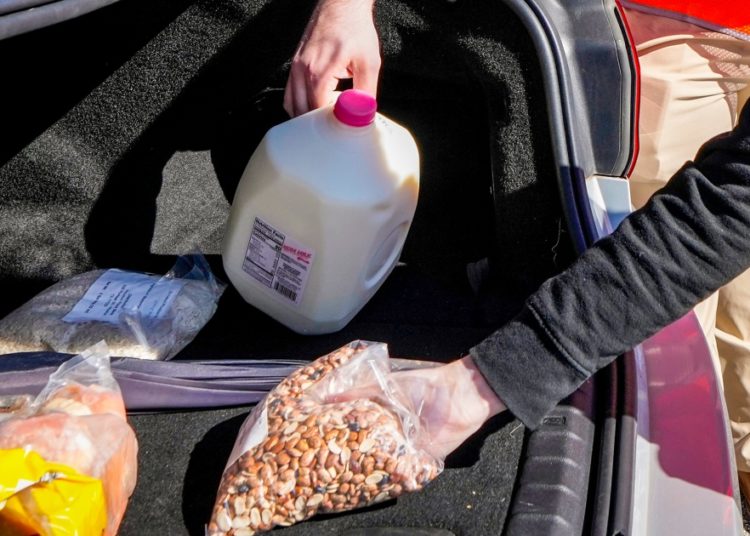Tim Meadows was in the main cast of the short-lived NBC sitcom “The Michael Richards Show,” in 2000, when he encountered an older character actor with a big white mustache. The actor was Bill Erwin, who had hundreds of acting credits including “Home Alone,” “Planes, Trains and Automobiles” and dozens of one-off roles in sitcoms — like this ill-fated one with Meadows.
But if “The Michael Richards Show” proved ultimately to be forgettable, the interaction with Erwin did not.
“I said, ‘You had a long career; I’ve seen you in everything,’” Meadows recalled telling him. “He goes: ‘Yep, I’ve been around for a long time. My secret for success? I always want to play the neighbor who comes in, says something funny and leaves.’”
Meadows chuckled to himself. “That’s my hero,” he said. “I want to be that dude when I’m 70, 75 years old.”
He is coming pretty close. Since leaving the cast of “Saturday Night Live” a quarter-century ago, he has made a career of being the kind of performer who is never top of the marquee but always vital to the comic alchemy, providing quotable lines and memorable expressions whenever he appears onscreen.
“Tim has a flawless dry delivery — like Bob Newhart,” Tina Fey, a longtime collaborator, wrote in an email. The two performed together for several seasons on “S.N.L.,” and Fey has tapped him for roles ever since, notably as the exasperated principal in “Mean Girls.” He is, Fey added, the “perfect, put-upon ‘voice of reason.’”
Meadows, 64, has been a steady presence in movies and television since his first “S.N.L.” episode in 1991, but this fall has been particularly fruitful. He just finished a run in Season 2 of the HBO Max superhero series “Peacemaker,” in which he played a government agent with a fictitious ailment that prevents him from distinguishing between birds. And earlier this month, CBS premiered “DMV,” a workplace sitcom set at a Los Angeles branch of the Department of Motor Vehicles. Reviews have been mixed, but Meadows’s mordant performance has been widely praised.
Meadows plays Gregg, a surly employee constantly bemoaning his life. The DMV isn’t a steppingstone for him; it’s a last resort. The show’s creator, Dana Klein, said she had Meadows in mind even before she started writing the pilot.
“I mean, he can get a laugh on the word ‘no,’” Klein said in a video interview. “I don’t know how he does it.”
Meadows is not the biggest star to emerge from his era of “S.N.L.” — he never had the movie career of, say, Will Ferrell or Adam Sandler — but he has never been far from the spotlight. He appears to be content with his place in the industry, though lately his brand of acerbic wit seems to be in demand. Asked whether he feels that there is new momentum in his career, Meadows responded in with a laid-back air of self-deprecation.
“If there is, I’m suppressing it,” he said. “I’m not going to get caught up in it. When I watch the Emmys and the Academy Awards, I feel like I’m in a different business.”
When we met earlier this month for lunch, Meadows was in New York for a quick trip to promote “DMV” before returning to Montreal to finish shooting Season 1. He suggested we meet at the storied White Horse Tavern, in the West Village neighborhood of Manhattan, near where he used to live during his time in “S.N.L.” In person, he was warm and reflective, at ease in the dim light of the historic bar.
He still feels a connection to the West Village and keeps an apartment in Venice Beach, in Los Angeles. But these days he spends most of the year in his hometown, Detroit, where he bought a house in 2017.
The son of a janitor and a nurse’s assistant, Meadows grew up there as the youngest of six siblings. As a young man, he kept the idea of pursuing comedy a “secret,” he said, and enrolled at Wayne State University, in Detroit, where he studied TV and radio broadcasting. Then he saw a newspaper article about local improv classes. He signed up and discovered quickly that the “yes, and” life suited him. He quit school before his junior year and moved to Chicago in the mid-1980s.
Success came relatively quickly. Within a few years of relocating, he was hired to the main stage of Second City, performing alongside the likes of Chris Farley and Bob Odenkirk. It wasn’t long before Meadows caught the eye of Lorne Michaels, who had visited Second City specifically to consider recruiting Farley to “S.N.L.” Michaels brought Farley on in 1990; Meadows debuted the year after.
Meadows became an “S.N.L.” mainstay, remaining in the cast for 10 seasons — a record until he was passed by Darrell Hammond, who finished with 14. (The current record-holder is Kenan Thompson, at 22 and counting.) Like many an “S.N.L.” cast member, he was encouraged to parlay one of his most popular characters — in his case, the lisping radio host Leon Phelps, otherwise known as “The Ladies Man” — into a starring role in a feature film. But “The Ladies Man,” from 2000, which Meadows’s co-wrote, was a critical and commercial flop.
“It slowed my career down,” Meadows said. “It slowed everything down.”
Meadows, however, said he doesn’t resent the fact that some of his peers have had greater box office success.
“I can honestly say, lie detector, I have no jealousy or anything with anybody I’ve worked with that went on to do well,” he said. “I’m really happy, because it feels like somebody I love.”
Meadows also just enjoys working. His “DMV” co-star Harriet Dyer described him as perpetually calm on set, eager to talk about his children. One of Meadows’s two kids is a senior in college; the other recently graduated. He is relieved they have no interest in pursuing comedy.
He said this with no hesitation. As his friend and former castmate Molly Shannon said in a phone interview, Meadows can also “be deadly serious in the greatest way.”
“There are some comedians that have to be on and are doing bits all the time and are joking, which sometimes can be a way to push people away,” she added. “Tim is much more real, wants to get very down to serious business, deep conversation very, very quickly.”
In recent years, Meadows has begun touring as a standup act for the first time — an experience he found “humbling in the beginning,” he said. It is a way, he added, to have an audience “validate something stupid” he thought up in his car. But it is also a backup plan in case the TV jobs suddenly dry up.
Conceivably, “Peacemaker” could lead to an expanded role in the DC Comics universe — his character is part of a new crime-fighting team established in the finale. That would be “very exciting,” Meadows said, but he isn’t counting on it. Similarly, “DMV” could take up the next 10 years of his life, or it could become like “The Michael Richards Show,” which ran a mere eight episodes. (“DMV,” at least, has been ordered for a full season.)
Meadows is prepared for any outcome. For now, he seems content to be a Bill Erwin type, who knows exactly where he fits.
“I owe that guy,” he said. “I’m glad I had that conversation with him.”
Video camera operating by Yazz Jansen.
The post Tim Meadows Just Wants to Keep Showing Up to Be Funny appeared first on New York Times.




